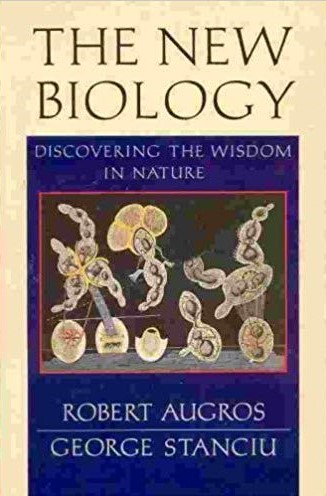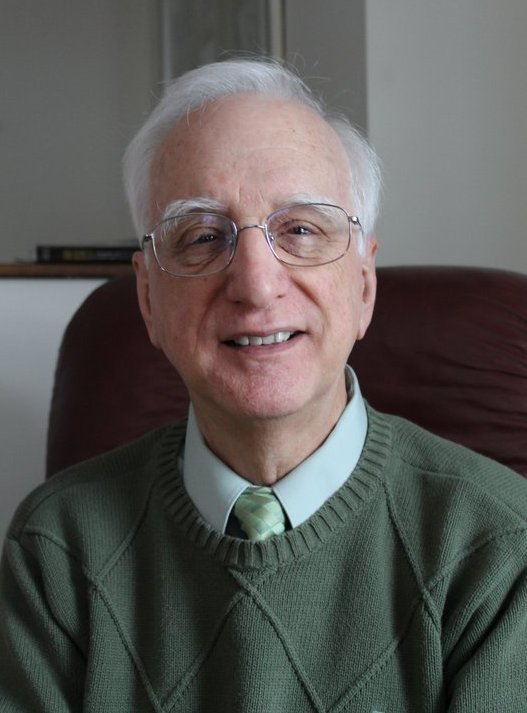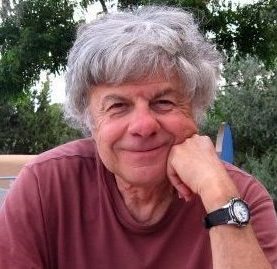|
home | what's new | other sites | contact | about |
||||||
|
Word Gems exploring self-realization, sacred personhood, and full humanity
Augros & Stanciu's George Stanciu, PhD, theoretical physics
return to "Evolution" main-page
Editor's note: The following is from Augros & Stanciu's The New Biology, chapter six, "Origins."
Evolutionary theory is currently being seriously rethought and is the occasion of some controversy and turmoil within biology. The debate is not whether evolution has occurred but whether Darwin’s mechanism, namely natural selection and gradualism, adequately account for evolution. On one side are the critics of neo-Darwinism [also called the “synthetic theory,” a revamped version of the old Darwinism in vogue since the 1930s]. Among them, Stephen Jay Gould [Harvard evolutionist] declares, “The synthetic theory … as a general proposition, is effectively dead, despite its persistence as textbook orthodoxy.” Colin Patterson, senior paleontologist at the British Museum of Natural History, also reflects skepticism and disillusion with conventional evolutionary theory: “For over 20 years I had thought I was working on evolution in some way. One morning I woke up… and it struck me that I had been working on this stuff for more than 20 years, and there was not one thing I knew about it. It’s quite a shock to learn that one can be misled for so long”... The essence of natural selection is expressed by Darwin himself: “If under changing conditions of life organic beings present individual differences in almost every part of their structure, and this cannot be disputed; if there be, owing to their geometrical rate of increase, a severe struggle for life at some age, season, or year, and this certainly cannot be disputed; then, considering the infinite complexity of the relations of all organic beings to each other and to their conditions of life, causing an infinite diversity of in structure, constitution, and habits, to be advantageous to them, it would be a most extraordinary fact if no variations have occurred useful to man. But if variations useful to any organic being ever do occur, assuredly individuals thus characterized will have the best chance of being preserved in the struggle for life; and from the strong principle of inheritance, they will tend to produce offspring similarly characterized. This principle of preservation, or the survival of the fittest, I have called Natural Selection.”
How could natural selection be controversial? It seems so cogent and plausible… [However, all] of the key assumptions [of Darwin], those about population growth, competition, and accumulation of slight differences, conflict with the results of modern ecological studies and genetic research. First, the field studies show that animal populations are limited not by predation, starvation, severities of climate, and disease the Darwin postulated, but by various natural restraints on the number of breeders and by adjustments in the number of offspring produced by each female. Second, no ongoing competition is observable in nature between species or between individuals of the same species. Similar animal species coexist without competing because they eat different foods or are active at different times or otherwise occupy different niches. Dispersion mechanisms reduce competition between individuals of the same species to a minimum. Niles Eldredge points to the many “ecologists skeptical of the very concept of competition between species … who claim they simply cannot see any evidence for such raw battling going on nowadays in nature.” Evolutionary biologist William D. Hamilton indicates the inconsistency: “The theory of evolution is based upon the struggle for life and the survival of the fittest. Yet cooperation is common between members of the same species and even members of different species.” The renowned Japanese biologist Kinji Imanishi has developed a theory of evolution based on the opposite of Darwin’s starting point. He writes: “I regard the biological nature we see not as the scene of survival competition, but as the scene of peaceful coexistence among species.” And third, Darwin’s gradualism assumes that “varieties are species in the process of formation, or are, as I have called them, incipient species,” and that “the lesser difference between varieties become[s] augmented into the greater difference between species.” This requires unlimited plasticity within each species. But the results of animal and plant breeding and of genetic experiments with artificially induced mutations contradict Darwin’s assumption that organisms are moldable in any direction without restraint. The natural limits of artificial selection were soon discovered by plant breeders. For example, between 1800 and 1878, crossbreeding increased the sugar content of sugar beets from 6 percent to 17 percent. But 50 years of subsequent experiments produced no further increases. All experienced breeders recognize the constraints. Luther Burbank: “I know from my own experience that I can develop a plum half an inch long or one two and a half inches long, with every possible length in between, but I am willing to admit that it is hopeless to try to get a plum the size of a small pea, or one as big as a grapefruit. I have daisies on my farms little larger than my fingernail and some that measure six inches across, but I have none as big as a sunflower, and never expect to have. I have roses that bloom pretty steadily for six months of the year, but I have none that will bloom twelve, and I will not have. In short, there are limits to the developments possible.” … [T]he accumulation of traits never exceeds the confines of the species. After 14,000 years of breeding dogs, man has produced scores of varieties but not a single new species. All races of dog are interfertile… After a certain limit is reached, crossbred organisms frustrate further attempts at improvement by becoming sterile or by reverting to type… Thus, all Darwin’s premises are defective: there is no unlimited population growth in natural populations, no competition between individuals, and no new species producible by selecting for varietal differences. And if Darwin’s premises are faulty, then his conclusion does not follow. This of itself does not mean that natural selection is false. It simply means that we cannot use Darwin’s argument … to establish natural selection as a means of explaining the origin of species.
|
||||||
|
|


